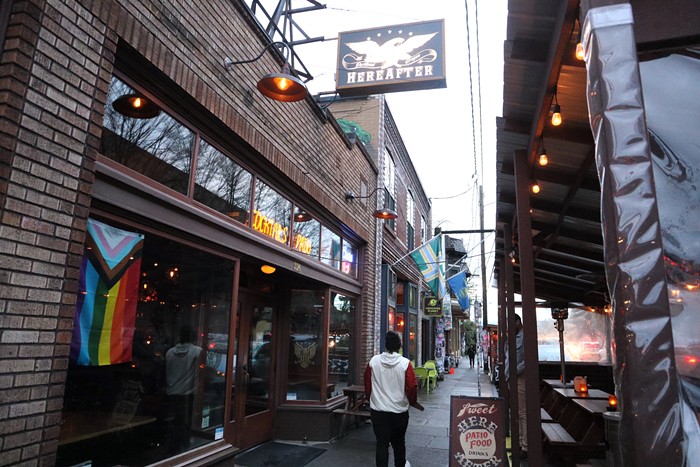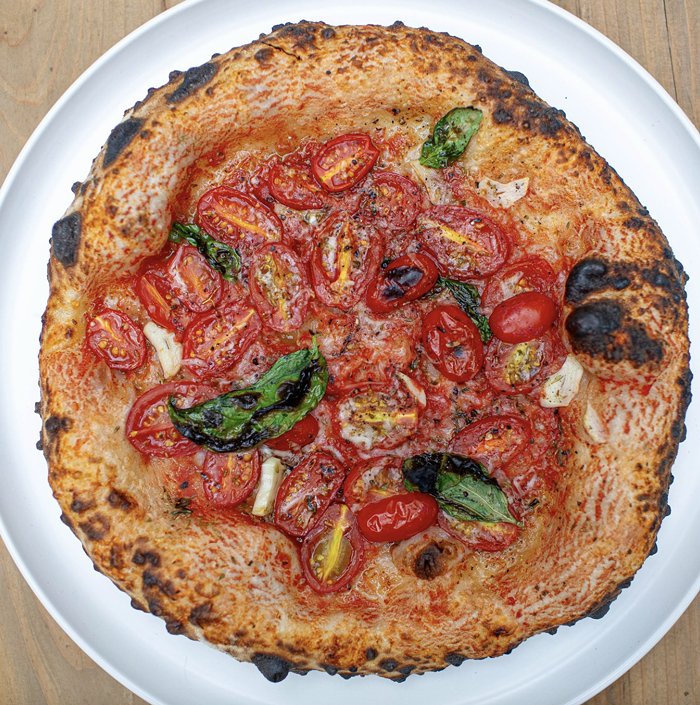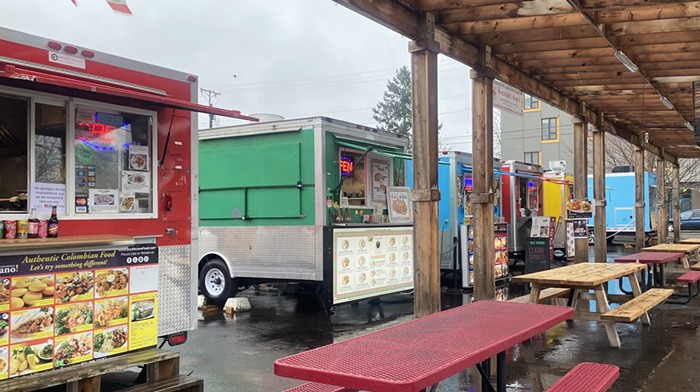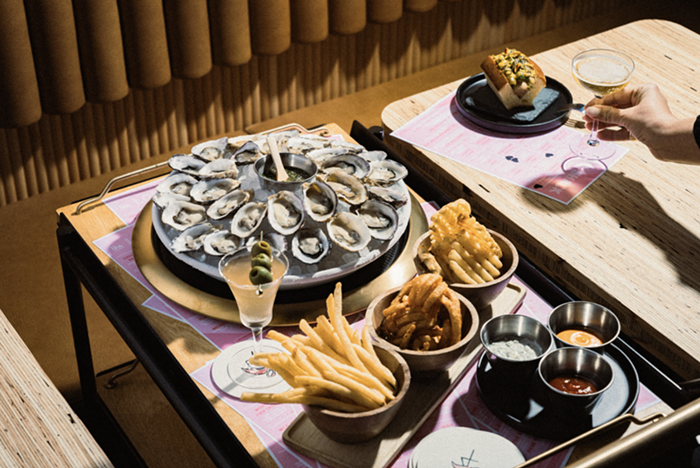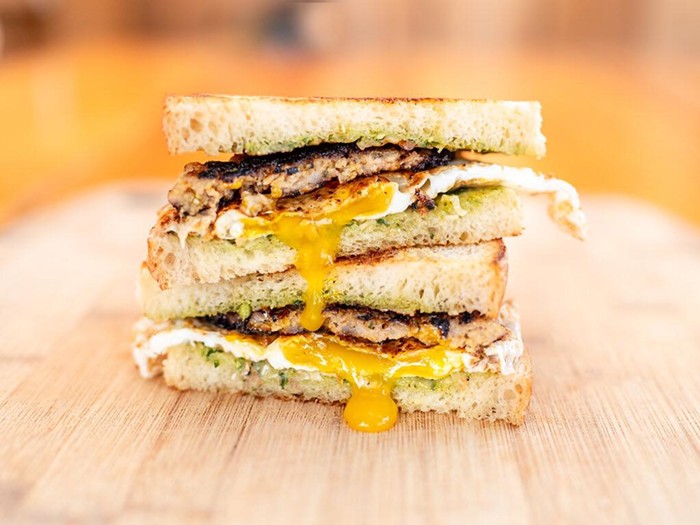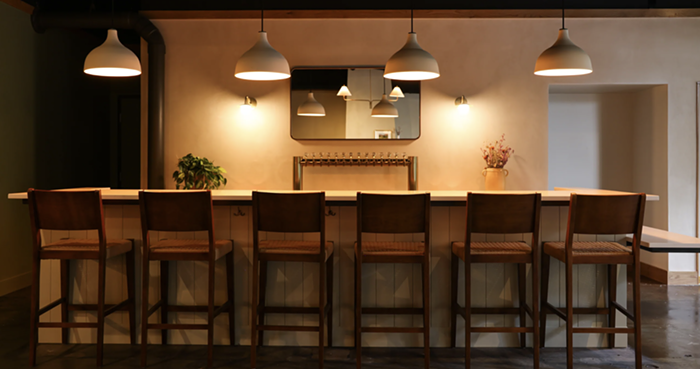Sommelier anxiety is a common condition, judging by the pages of advice on the internet about how to speak to the gatekeepers of vinous pleasure. It’s as though we revert to timid first graders ordering from the ice cream truck. But you don’t have to suffer from Social Anxiety Disorder—the fear of being judged and evaluated by others (a huge mental healthcare problem)—to find a conversation about wine intimidating. It doesn’t help if you’re in a stuffy restaurant with tablecloths and a menu in French, where the wine list is the size of a bible and the sommelier looks on with disdain at your sad attempts to impress your date while ordering the third least expensive bottle you can find.
The good news is that Portland doesn’t really have restaurants like that, even at the highest end.
“The biggest misconception is that somms are going to be these older, suited assholes,” says Brent Braun, wine director at (the very upmarket) Castagna. “Portland is an amazing city for drinking wine, as it’s really un-intimidating—the somms are young and passionate.”
Braun is the epitome of this new generation of sommelier: just 30 years old, he’s self-taught and, yes, refuses to wear a suit at work. When I meet up with him at new downtown wine bar Bardot (626 SW Park), he’s quick to spot the bottles with modest markups and selects a champagne (Jacques Lassaigne Blanc de Blanc).
While we wait for it to chill, I ask him about the social angst of ordering wine.
“There’s no reason to be intimidated by a somm,” he says. “A good one should be able to take whatever you offer up as a diner and find something you love.”
Like a vinous Sherlock Holmes, his job is to deduce from hints and clues (“I like Cabs,” “I don’t like tannin,” “Do you have any pink Zinfandel?”) a solution that fits the food and your palate. And that should come with a guarantee: Braun emphasizes that any good restaurant should replace a bottle you don’t like.
Our bottle is taking too long to cool—there’s too much ice in the bucket, not enough liquid—so Braun dumps our waters in. I tell him that recently I’ve taken to ordering by the glass with courses. As he swirls the bottle around to help it chill, he tells me I’ve got it wrong if I’m looking for value and fun.
“Unless you’re doing a wine pairing, you’ll get so much more interesting wines by the bottle than the glass,” he says. “Glass pours tend to be less exclusive—things you’ll find in other restaurants or wine shops. They also have bigger markups, as you’re paying to have options and variety.”
No worry, he explains, if the table is divided between, say, fish and lamb dishes, since any somm’s toolkit includes “cheater wines” to accommodate both (which, in many cases, is some form of rosé).
The bottle finally chilled, the waitress pops the cork, and, with drinks in hand, I move on to another common vexation: Why are wine lists so flippin’ long? He laughs and explains that restaurants such as Castagna have to cover major regions and varietals. But also having different vintages is “geeky fun.”
“I like to collect Rieslings,” he says. “If I sell half and then stash the rest, in a few years I can offer guests something special with a bit of age that they can’t find somewhere else.”
He also admits to bargain hunting, searching for singular wines at knockdown prices. And because he is so into Rieslings, many of them are priced low.
“You can find deals in almost any restaurant,” he says. “Somms have these passion picks—wines they love and mark down because they want people to drink them.”
These are unlikely to be Napa Cabs: Value is found amongst the unknown and under-appreciated.
When asked which other somms around town he admires, he nominates Brandon Smith at Ava Gene’s, Christopher Sky Westmoreland at St. Jack, and Dana Frank at the recently opened Dame. He recommends Sapporo as a palate cleanser, drinks whiskey off duty to escape the acidity of all that wine, and (I’m pleased to discover) pronounces French labels as badly as I do. Throughout our conversation he underlines how much he sees his job as introducing people to good wines and the stories behind them. Perhaps sommeliers are human after all.
As we finish off our bottle, we compare notes and agree that, although satisfying as a champagne, it wasn’t anything special—safe to say it won’t be appearing on the Castagna list any time soon.
